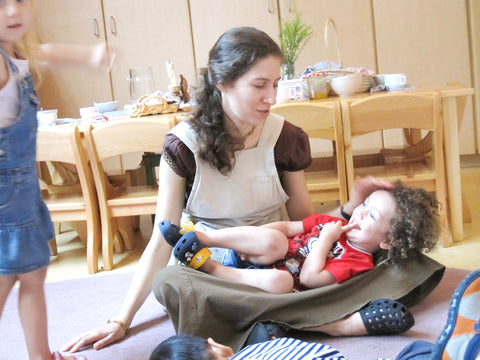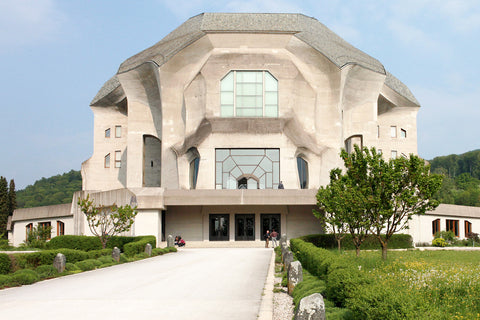What is Steiner (Waldorf) Education?
Steiner or Waldorf education is a humanistic approach to pedagogy based on the educational philosophy of the Austrian philosopher Rudolf Steiner, the founder of anthroposophy.
The first Steiner school was founded in 1919 in Stuttgart, Germany. Steiner created it at the request of Emil Molt, owner of Waldorf-Astoria Cigarette Company, to serve the children of the factory's workers.
At present there are over 4,000 Steiner schools located in 60 countries. In Hong Kong, there are 2 international and 2 local kindergartens and 1 international primary school. There are also several groups of parents working on the establishment of local Waldorf primary schools. We have collected their information in a directory on our website.
Pedagogical theory
The educational philosophy's overarching goal is to develop free, morally responsible, and integrated individuals equipped with a high degree of social competence.
Steiner's division of child development into three major stages is reflected in the schools' approach to early childhood education, which focuses on practical, hands-on activities and creative play; to elementary education, which focuses on developing artistic expression and social capacities; and to secondary education, which focuses on developing critical reasoning and empathic understanding.

Early childhood education
Steiner believed that the intellectual development of children must be balanced by the nurturing of their life force. This is especially important for young children, as early learning is profoundly connected to the child’s own physical body and sensory experience. Everything he sees, hears, and touches has an effect. Thus a clean, orderly, beautiful, quiet setting is essential. When toys are used, they are made of natural materials. The use of electronic media is discouraged. Adults should speak and sing in a peaceful manner to foster a warm and loving environment.

Introductory books on Steiner education
- You Are Your Child's First Teacher: Encouraging Your Child's Natural Development from Birth to Age 6 by Rahima Baldwin Dancy
- Simplicity Parenting: Using the Extraordinary Power of Less to Raise Calmer, Happier, and More Secure Kids by Kim John Payne and Lisa M Ross
- Understanding Waldorf Education: Teaching from the Inside Out by Jack Petrash
- See our Introduction to Steiner education collection
Steiner education in the world
- Alliance for Childhood
- Steiner Waldorf Schools Fellowship UK
- Association of Waldorf Schools of North America
- Taiwan Waldorf Education Association
- Article: Waldorf education in China
- Pedagogical Section of Goetheanum
Anthroposophy and its practical applications
Anthroposophy (meaning “wisdom of the human being” or “consciousness of one’s humanity”) was defined by its founder, Rudolf Steiner (1861-1925) as “a path of knowledge, to guide the spiritual in the human being to the spiritual in the universe.”
Steiner considered anthroposophy to be a science of the spirit, and a necessary complement to natural science.
The philosophical foundation of the Waldorf approach, anthroposophy, have been applied practically in many areas in addition to education. It has spawned the Camphill movement (special education), biodynamic agriculture, medicine, ethical banking, organizational development, and the arts.



